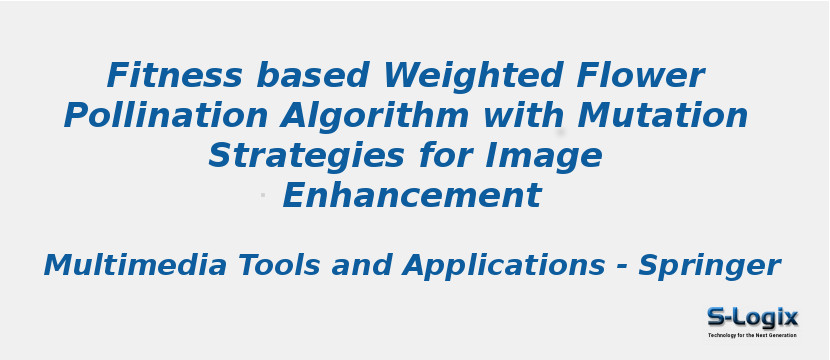Research Area: Metaheuristic Computing
Flower Pollination Algorithm (FPA) is a well-known swarm intelligence optimization algorithm, which has shown an effective performance by solving many optimization problems. The performance of the FPA significantly depends on the balance among exploration and exploitation stages. However, FPA operators may cause false positive optima location in multimodal surfaces. Under such circumstances, modifying the original structure of the FPA can increase the ability of FPA to effectively locate optima in multimodal surfaces. In this study, fitness based dynamic inertia weight and two popular mutation techniques of differential evolution (DE) have been employed to increase the performance of FPA which helps to achieve a higher balance among evolutionary stages and effectively locate optima in multimodal surfaces. The proposed modified FPA (PMFPA) has been employed in image enhancement field to measure the efficiency. The experimental study corroborates the effectiveness of the PMFPA over popular swarm intelligence algorithms, original FPA and some of its variants by producing more robust, scalable and precise results.
Keywords:
Flower Pollination Algorithm
intelligence optimization
exploration
exploitation
positive optima
multimodal surfaces
robust
scalable
precise
Author(s) Name: Arunita Das, Krishna Gopal Dhal, Swarnajit Ray, Jorge Galvez & Sanjoy Das
Journal name: Multimedia Tools and Applications
Conferrence name:
Publisher name: Springer
DOI: /10.1007/s11042-022-12879-z
Volume Information: 81, pages 28955–28986
